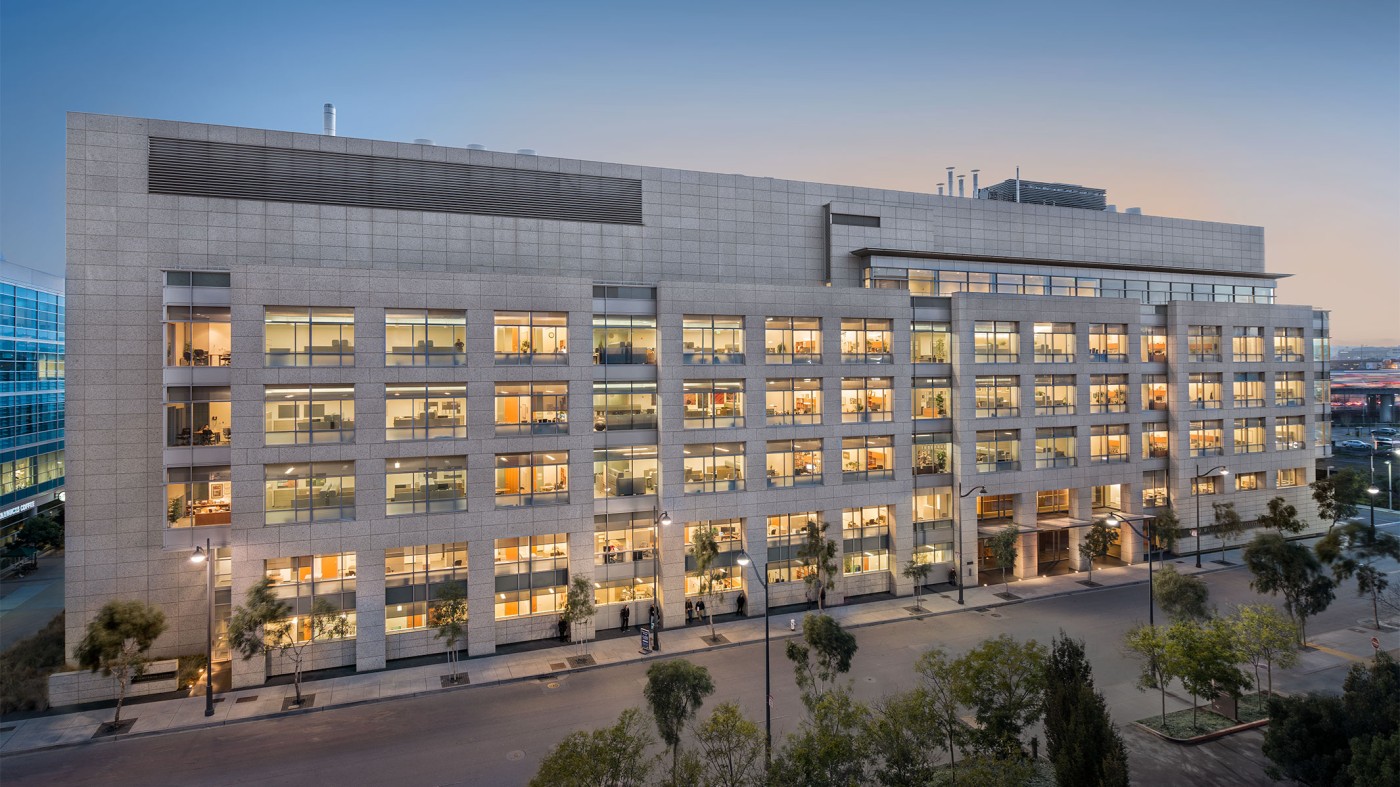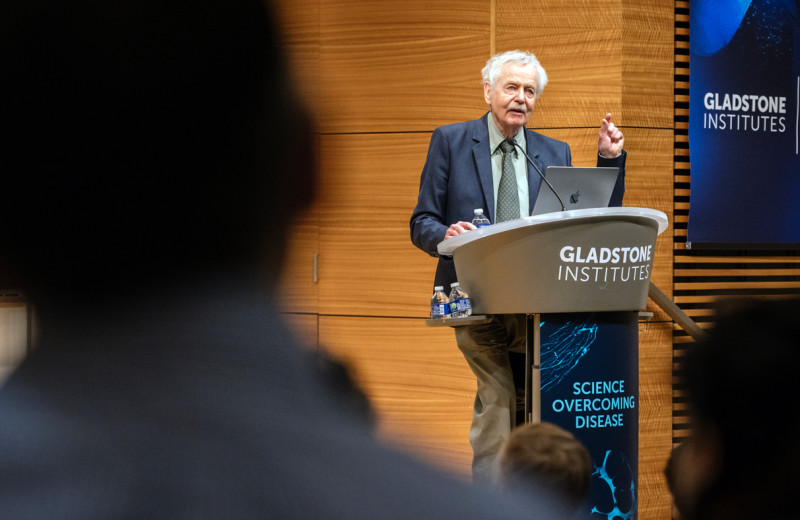Gladstone NOW: The Campaign Join Us on the Journey✕

SAN FRANCISCO, CA—May 25, 2012—The California Institute for Regenerative Medicine (CIRM) has awarded Deepak Srivastava, MD—who directs cardiovascular and stem cell research at the Gladstone Institutes—a $6.3 million Early Translational Award to promote stem cell-based innovation. Dr. Srivastava will use these funds to evaluate new therapies for regenerating damaged heart muscle in a preclinical setting that could lay the foundation for human clinical trials.
In April, Dr. Srivastava showed in mouse models that it is possible to reprogram non-beating cells—which normally form scar tissue after a heart attack—into fully functional, beating heart cells, resulting in more muscle, smaller scar and most importantly improved heart function. With this award, Dr. Srivastava plans to continue this research via preclinical trials in larger animal models such as pigs, before initiating human clinical trials. The goal is to offer an innovative and less invasive way to restore heart function after a heart attack.
“Annually in the United States alone, the nearly 1 million people who survive a heart attack are left with hearts that can no longer beat at full capacity—yet no
treatment exists that can repair this damage,” said Dr. Srivastava, who is also a professor at the University of California, San Francisco (UCSF) with which Gladstone, an independent and nonprofit biomedical research organization, is affiliated. “With generous support from CIRM, our goal is to apply our results to therapies that can have a significant impact on development of heart-failure— in which damage to the heart makes it difficult for patients to engage in normal activities like walking up a flight of stairs.”
Dr. Srivastava’s research builds on the groundbreaking cell-reprogramming work of another Gladstone scientist and UCSF professor of anatomy, Shinya
Yamanaka, MD, PhD. Dr. Yamanaka's 2007 discovery of a way to turn adult human skin cells into cells that act like embryonic stem cells has radically advanced the fields of cell biology and stem cell research. But Dr. Srivastava’s
work goes further by employing a technique called “direct reprogramming.” Direct reprogramming could revolutionize the field of regenerative medicine, as it lets scientists transform one adult cell type into another without first having to revert back to the stem cell state.
CIRM, in collaboration with the governments of China, Australia and Germany, has allocated a total of $69 million to foster California-based stem cell scientists. These awards mark the third round of funding for CIRM’s Early Translational Awards program, which supports projects that are in the initial stages of identifying drugs or cell types that could become disease therapies.
CIRM and its international collaborators believe these awards could set off a wave of progress in the field of regenerative medicine, progress that could one day lead us to cures for some of the most devastating diseases we face— including Alzheimer’s disease, cancer and diabetes.
“With these new awards, we now have 52 projects in 33 diseases at varying stages working toward clinical trials,” said Jonathan Thomas, JD, PhD, CIRM governing board chair. “These projects represent the best of California stem cell science and the best international experts who, together, will bring new therapies for patients.”
Before joining Gladstone in 2005, Dr. Srivastava was a professor in the department of pediatrics and molecular biology at the University of Texas Southwestern (UTSW) Medical Center in Dallas. He has received numerous honors and awards, including endowed chairs at UTSW and UCSF, as well as election to the American Society for Clinical Investigation, the Society for Pediatric Research, the American Academy of Arts and Sciences and the American Association for the Advancement of Science.
About CIRM
CIRM was established in 2004 with the passage of Proposition 71, the California Stem Cell Research and Cures Act. The statewide ballot measure, which provided $3 billion in funding for stem cell research at California universities and research institutions, was overwhelmingly approved by voters, and called for the establishment of an entity to make grants and provide loans for stem cell research, research facilities and other vital research opportunities.
About the Gladstone Institutes
Gladstone is an independent and nonprofit biomedical-research organization dedicated to accelerating the pace of scientific discovery and innovation to prevent, treat and cure cardiovascular, viral and neurological diseases. Gladstone is affiliated with the University of California, San Francisco.
A Sculptor of Modern Regenerative Medicine
A Sculptor of Modern Regenerative Medicine
Among his myriad accomplishments, Rudolf Jaenisch—winner of the 2025 Ogawa-Yamanaka Stem Cell Prize—was the first to demonstrate the potential of induced pluripotent stem cells to treat disease.
Awards Ogawa Stem Cell Prize Profile Regenerative Medicine Stem Cells/iPSCsDeepak Srivastava Selected to Deliver American Heart Association’s Distinguished Scientist Lecture
Deepak Srivastava Selected to Deliver American Heart Association’s Distinguished Scientist Lecture
Srivastava will present at the American Heart Association’s Scientific Sessions 2025 in New Orleans; the lectureship is a major recognition of excellence by the association.
News Release Cardiovascular Disease Srivastava Lab Genomics Stem Cells/iPSCsScience in Seconds | Researchers Pinpoint Key Gene Behind Heart Defects in Down Syndrome
Science in Seconds | Researchers Pinpoint Key Gene Behind Heart Defects in Down Syndrome
In this video, Gladstone scientists share how they used stem cells, gene editing, and AI to identify a gene driving heart defects in Down syndrome—and how reducing its levels in mice restored normal heart development, offering hope for future treatments
Gladstone Experts Cardiovascular Disease Data Science and Biotechnology Pollard Lab Srivastava Lab AI Big Data CRISPR/Gene Editing Human Genetics Stem Cells/iPSCs



